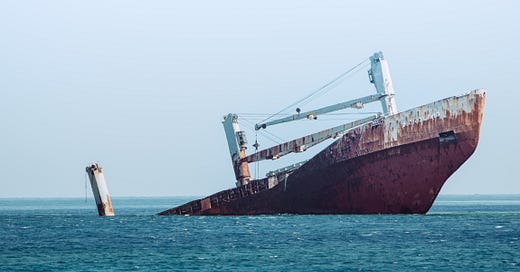“The Captain Goes Down with the Ship.”
Another version of this saying is: “The captain is the last to leave the ship.” I like this version better.
Either way, it means a good leader takes care of their people. It means “with great power comes great responsibility.” It means that, as the person in charge, you make sure that you experience the consequences of your decisions—they are not just felt by your people.
One of the ways I have seen this dramatically implemented in the professional world is when a company experienced an economic setback a few years back, the CEO cut their own salary, so that the remaining revenue could be used to keep everyone on payroll, rather than having layoffs.
CEOs who make those personal sacrifices have “skin in the game.” Their people respect and admire that. That’s a solid foundation for mutual respect and loyalty.
now, I’m not recommending that you take a massive pay cut or anything. But think about what you ask your team members to do. Consider how your decisions impact their lives. And make choices that reflect the importance of your people—to you, to your team, to your firm, to your clients, etc.
For example, if the people in your office plan to take time off for summer vacations each year and you are coordinating the requests to keep a functioning office, the rule can be: the boss doesn’t get the first “dibs” on vacation time. You can make an exception one year if there is a family wedding or something else significant on a specific date, of course. but that leadership mentality of caring for your team by “holding down the fort” and adapting to ensure that their needs are met—that has an impact.
(Photo by Jason Blackeye on Unsplash)



